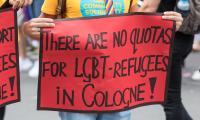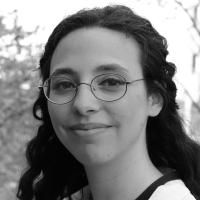New research will investigate civil society organizations’ role in protecting LGBT+ refugees

In 75 countries across the globe, it’s forbidden to have a different gender or sexuality than heterosexual man or woman. LGBT+ people are persecuted and imprisoned based on their sexuality and gender and might therefore be forced to flee or migrate from their country of origin.
At the same time migration politics in Europe have become stricter and it’s become more difficult to get asylum and protection.
“If you seek asylum because you’re persecuted based on your gender or sexuality then you have to prove that you are an LGBT+ person,” says researcher Valentina Massone.
The stricter rules have resulted in more civil society organizations and private people stepping up to help LGBT+ refugees in need of protection.
Some research has already been done on how these organizations help, how the volunteers’ use their own experiences being queer in helping and how these organizations influence and are influenced by the society they function in. But most of the current research emphasize the separation between helpers and beneficiaries and does not focus on refugee/asylum seekers agency and role within civil society activism.
“I want to investigate the grey areas of humanitarian support. In research we often look at the big organizations, but civil society organizations are also important. They help people with documents and navigating in the system, but they also try to influence the society they work in,” says Valentina Massone.
In her future Ph.D.-project ‘Queer to Queer Humanitarianism - Identity, activism and transnational benevolence among LGBT+ refugees and asylum seekers in Rome and Copenhagen’, she’ll examine how the Danish organization LGBT Asylum and the Italian Il Nido del Colibrì help asylum seekers.
She’ll look both at the differences and similarities between the two organizations: LGBT+ Asylum which exist in a Danish society with much focus on equal rights for all genders and sexualities and with strict laws against hate crimes. And Il Nido del Colibrì which is part of an Italian society where the rights of LGBT+ people are less protected and where a law against hate crime was recently dismissed.
“LGBT rights are supported in Denmark and LGBT Asylum just got more funding whereas the Italian organization is much more precarious and rely on private donations. So that’ll probably influence how the two organizations are able to help.”
She’ll also look into how the two organizations use activism to try to change the asylum system so that it becomes easier for LGBT+ refugees to get asylum.
“I’m interested in studying which emotions start activism. Is it grief, anger, your own LGBT+ identity collective memory? This is something I aim to get a better insight into.”
The Ph.D.-project starts in February 2023 and is supported by The Independent Research Fund.
DIIS Eksperter
